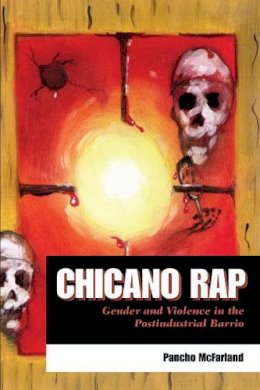
Stock image for illustration purposes only - book cover, edition or condition may vary.
Chicano Rap: Gender and Violence in the Postindustrial Barrio
Pancho McFarland
€ 34.78
FREE Delivery in Ireland
Description for Chicano Rap: Gender and Violence in the Postindustrial Barrio
Paperback. Powered by a driving beat, clever lyrics, and assertive attitudes, rap music and hip hop culture have engrossed American youth since the mid-1980s. This title looks at how Chicano/a youth have adopted and adapted rap music and hip hop culture to express their views on gender and violence, and on how Chicano/a youth fit into a globalizing world. Num Pages: 216 pages, 13 color photos in section. BIC Classification: 1KLCM; AVGR; GTB. Category: (P) Professional & Vocational. Dimension: 230 x 153 x 13. Weight in Grams: 362.
Powered by a driving beat, clever lyrics, and assertive attitudes, rap music and hip hop culture have engrossed American youth since the mid-1980s. Although the first rappers were African Americans, rap and hip hop culture quickly spread to other ethnic groups who have added their own cultural elements to the music. Chicano Rap offers the first in-depth look at how Chicano/a youth have adopted and adapted rap music and hip hop culture to express their views on gender and violence, as well as on how Chicano/a youth fit into a globalizing world.
Pancho McFarland examines over five hundred songs and seventy ... Read more
Show LessProduct Details
Format
Paperback
Publication date
2008
Publisher
University of Texas Press United States
Number of pages
216
Condition
New
Number of Pages
216
Place of Publication
Austin, TX, United States
ISBN
9780292718036
SKU
V9780292718036
Shipping Time
Usually ships in 7 to 11 working days
Ref
99-1
About Pancho McFarland
PANCHO MCFARLAND is Assistant Professor of Sociology at Chicago State University.
Reviews for Chicano Rap: Gender and Violence in the Postindustrial Barrio
"This study of Chicano rap music is truly a first of its kind... a single-focus study on Chicano rap, its musicians and politics, and how rap and hip hop is a musical counter-narrative to the disenfranchisement of working class barrios." Arturo Aldama, Associate Professor of Ethnic Studies and Director of the Center for Studies of Ethnicity and Race in America, ... Read more
